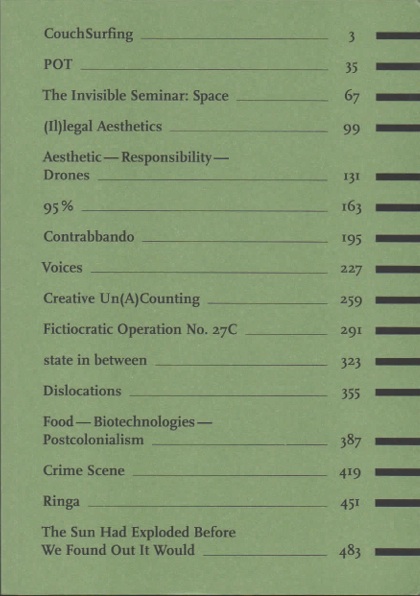Mindaugas Gapševičius (ed)
ISBN 978-609-447-143-8
This book — the third Migrating Art Academies (MigAA) publication — marks the end of the third phase of the MigAA program, which, over the course of seven years has grown into a dynamic and vital network of art academies and universities, independent arts organizations, many hundreds of people, and endless ideas. It documents the results of sixteen innovative workshops that the network organized during the last four years that took place across nine European countries.
The book includes works, essays, concepts, and other documentary and peripheral material developed before, during, and after the sixteen different workshops. It is first of all presented as a source for any and all emerging artists who search for a means of creating, nurturing, and manifesting their ideas. Secondly, it is meant as a source for inspiring and fresh perspectives for professional artists experiencing a creative block or who are stuck in unproductive patterns of thought. Finally, for those seeking to understand contemporary art and its challenges, it constitutes an excellent window into the surprising variety of practices with which the participating artists addressed the issues that confronted them.
In order to emphasize the distributed nature of the MigAA network, the book is designed with no particular hierarchic continuity. The only source of continuity is the page numbering that follows the chronological sequence of the laboratories: each of them are separated into chapters corresponding to the name of the laboratory. The chapters are presented in a random order to reflect the open nature of the network. Each laboratory/chapter is formatted the same: identifying where it took place, and providing the relevant information on the input, the process, and the output, as well as an introduction section and a list of participants.
The publication of this book could not have been possible without the enthusiastic and farsighted support of the EU Culture Programme 2007-2013, Nordic Culture Point, and the Lithuanian Council for Culture.
